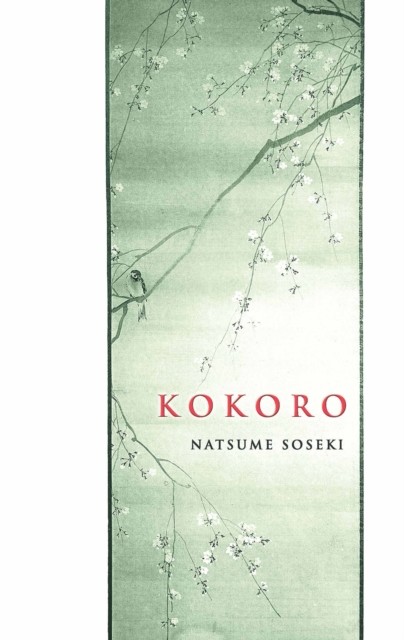Kokoro
- Kiadás éve
- 2012
Benyomások
- b7338932796megosztott egy benyomást6 évvel ezelőtt
The only word which can fully describe all the profoundness of the novel is Kokoro. What a magnificent word. How Natsume wrote "this story is probably necessary for the understanding of the nature of the human being"
- R Güemesmegosztott egy benyomást5 évvel ezelőtt👍Érdemes elolvasni🔮Rejtett mélységek💡Sokat tanultam
Un libro lleno de frases y situaciones para reflexionar. Nuestros actos tienen siempre consecuencias.
- fremegosztott egy benyomást5 évvel ezelőtt🔮Rejtett mélységek
Alurnya lambat banget-benar-benar mengganggu. Buku ini nggak sampai 300 halaman tapi saya baru selesai baca setelah satu minggu pinjam dari perpustakaan, itupun setengahnya saya paksa-paksain baca hari ini. Poin utama ceritanya ada di babak ketiga, baru mulai di pertengahan, yang mana bikin saya merasa dua babak awal yang dituturkan narator ini terlalu panjang dan bertele-tele (meski sebenarnya punya peran penting juga).
Dulu beberapa teman sesama penulis pernah ngasih saya saran untuk tidak memakai terlalu banyak sudut pandang dalam sebuah cerita. Cukup satu sudut pandang yang konsisten aja gitu katanya. Alhasil saya mungkin kurang berksperimen mencampur-aduk sudut pandang, dan baca buku ini sedikit bingung sekaligus merasa kontra. Itu pada awalnya doang, sih. Sekarang saya justru mau bilang terima kasih-karena berkat Natsume Souseki-sensei saya jadi tercerahkan, tersadar kalau penggunaan banyak sudut pandang tidak langsung membuat satu buku itu jadi jelek. Asalkan jago meramu aja, sih. Mungkin bisa saya jadikan acuan untuk menulis ke depannya.
Terlepas dari ¾ bagian buku yang menurut saya terlalu lambat, panjang, dan bertele-tele ini, sisa ¼ bagiannya cukup memuaskan. Saya jadi lumayan bisa menghargai betapa lambatnya buku ini berjalan setelah selesai membaca sampai ending-bahwasanya pace lambat itu memang dibutuhkan dan menjadi esensi penting dalam buku ini sendiri. Serasa ada segumpal kertas hitam dijejalkan paksa agar menyangkut di tenggorokan saya. Sampai sekarang masih nggak mau hilang.
Mengingat buku ini ditulis pada zaman Taisho (1912-1926), dan berlatar pada zaman Meiji (1868-1912), saya apresiasi banget keberanian Natsume Souseki dalam mendobrak topik baru yang diusung oleh tulisan-tulisannya. Pembicaraan seputar depresi, kecemasan, gangguan mental, atau bunuh diri di masa sekarang mungkin sudah banyak dibahas, makanya saya sendiri agak bosan membaca ini-masih ada buku lain di luar sana yang ditulis di masa yang lebih dekat dengan saya, dengan gaya penyampaian yang tidak sekuno milik Souseki, jatohnya jadi jauh lebih menarik. Well, nggak ada salahnya juga menilik topik ini dari persepsi awal masa modern Jepang.
Idézetek
- dericebeebzidézett5 évvel ezelőttHow can I escape, except through faith, madness, or death?
- Nikolai C.idézettelőző év“Why is it, Sensei, that you are not as interested in books as you once were?”
“There is no particular reason . . . Well, perhaps it is because I have decided that no matter how many books I may read, I shall never be a very much better man than I am now. And . . .”
“And?”
“This is not very important, but to tell you the truth, I used to consider it a disgrace to be found ignorant by other people. But now, I find that I am not ashamed of knowing less than others, and I am less inclined to force myself to read books. In short, I have grown old and decrepit.” - Nikolai C.idézettelőző évHis curt and cold ways were not designed to express his dislike of me, but they were meant rather as a warning to me that I would not want him as a friend. It was because he despised himself that he refused to accept openheartedly the intimacy of others. I feel great pity for him


